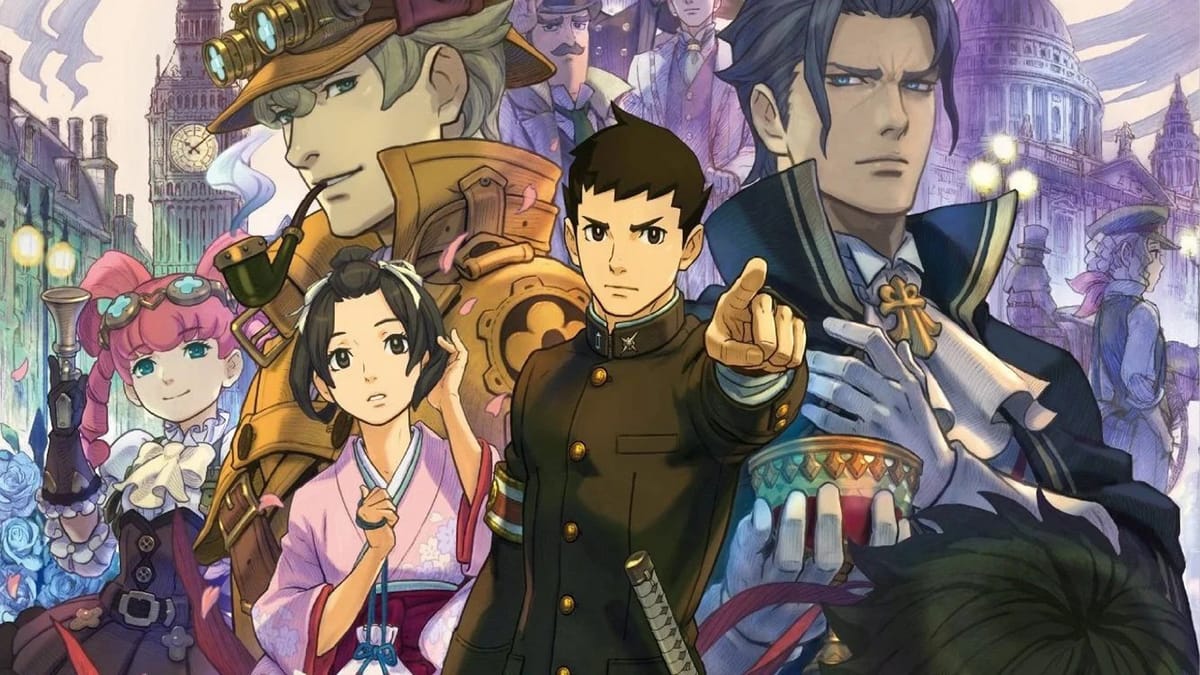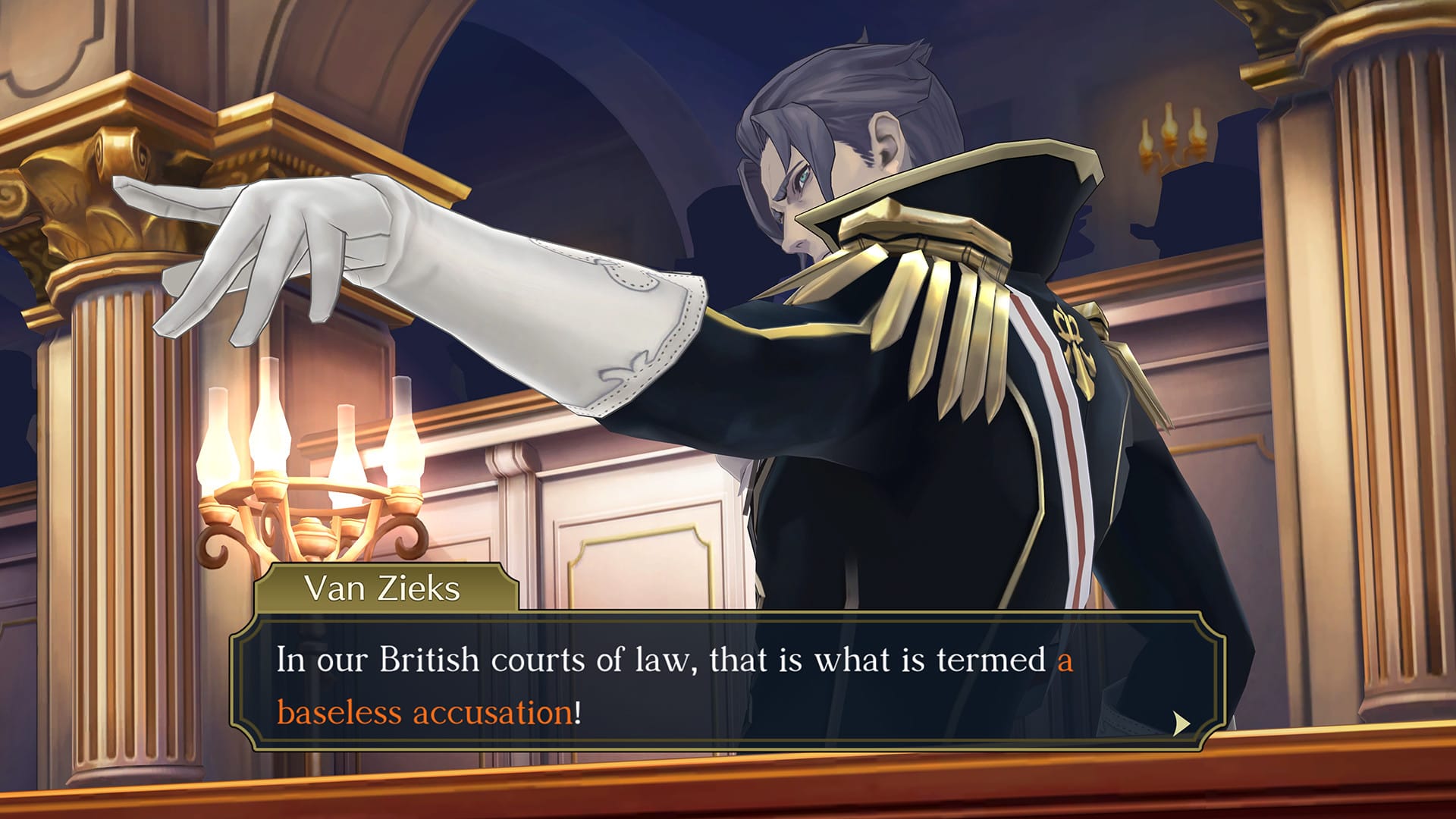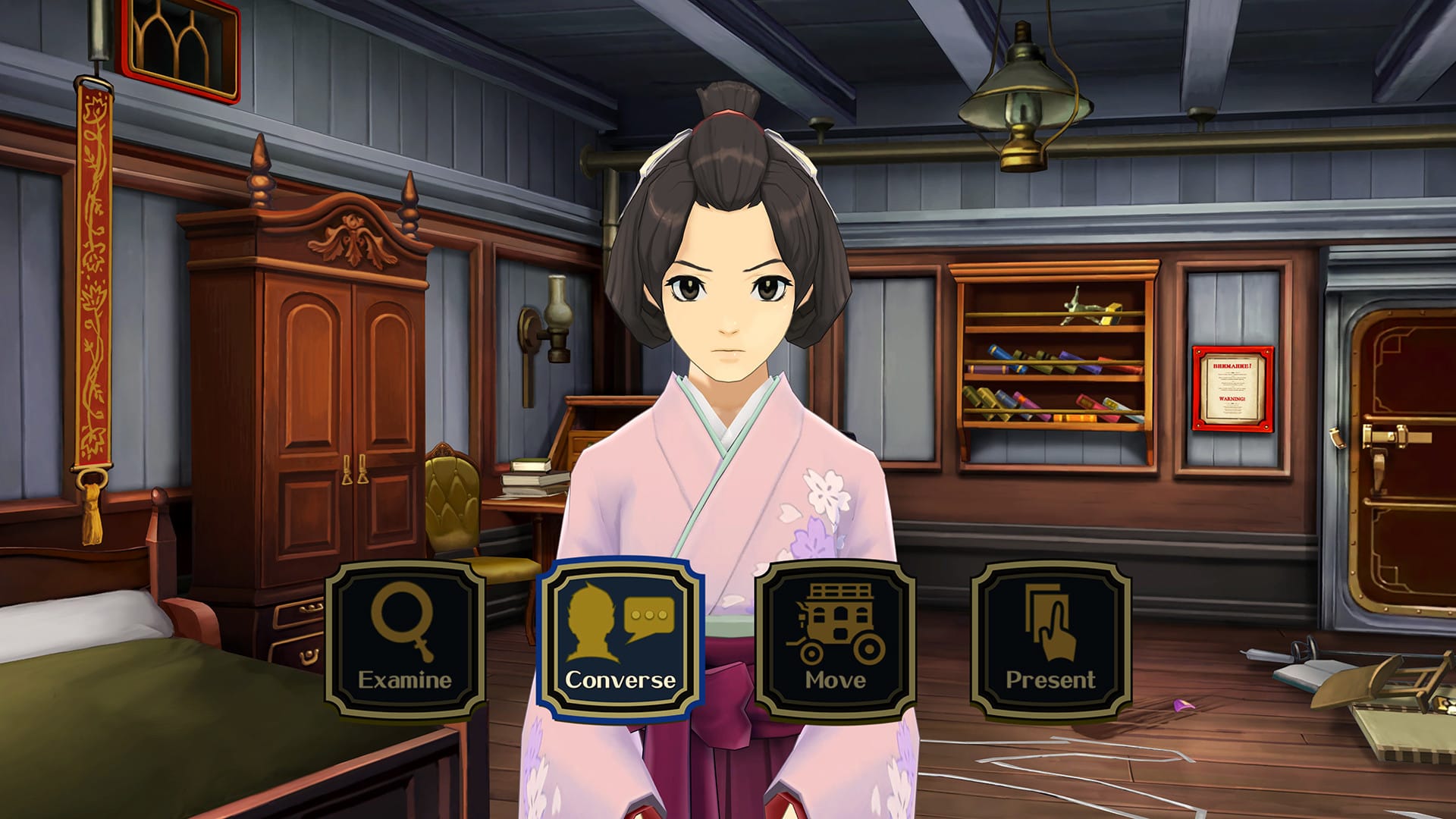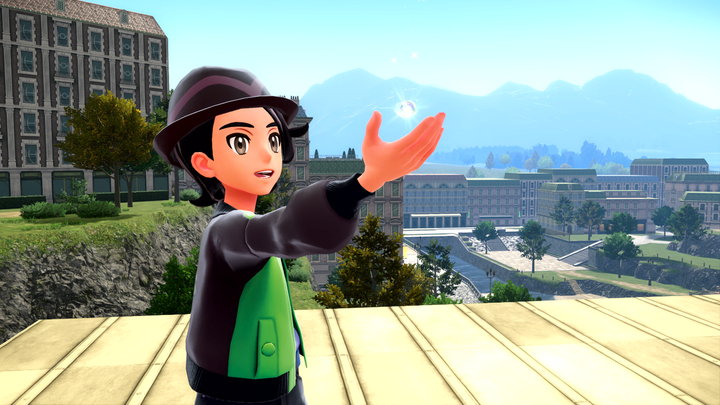The Great Ace Attorney Chronicles Review: No Objections To This Incredible Spin-Off
Hold it!

If you told Ace Attorney fans a year ago that Capcom were localising Dai Gyakuten Saiban, we simply wouldn’t have believed you. After many dashed hopes these last six years, the long-awaited duology has finally arrived on Switch, PC and PS4, now called “The Great Ace Attorney Chronicles”.
Placing both entries, Adventures and Resolve, into one package, this spin-off comes from Ace Attorney’s original creator, Shu Takumi, who’d left after 2007’s Apollo Justice. Not only does it retain that signature courtroom gameplay with fresh twists, Chronicles is a phenomenal entry worth your time.
Set at the start of the 20th century, Great Ace Attorney uses Phoenix Wright’s distant ancestor, Ryūnosuke Naruhodō, an English student frequently drawn to trouble, and Adventures begins with Ryūnosuke on trial for allegedly murdering Dr. John H Watson Wilson. Eventually, he ends up travelling to Great Britain with judicial assistant Susato Mikotoba to further his studies, becoming a defence lawyer and going up against Prosecutor Barok Von Zieks.
This is still very much an Ace Attorney game despite the setting change, packed with a gripping story and the series’ signature humour. However, by going back to Victorian-era Britain, Capcom hasn’t sugar-coated British social attitudes and their misconceptions towards foreigners, either, as often witnessed when others speak with Ryū and Susato. Fortunate then that such views are regularly challenged, and our newest duo repeatedly put such people to shame.
Notably, Chronicles features a significant crossover with Sir Arthur Conan Doyle’s famous detective, Herlock Sholmes - yes, I spelled that correctly - alongside John’s 10-year-old daughter, young and eccentric inventor Iris Wilson. Though these two entries initially released separately, they’re closely tied together, so my review treats both as one set. Resolve picks up from the first game’s story two months later and thanks to Adventure’s unresolved plot threads, they feel more like one larger entry than two separate games. Putting them in a collection is beneficial.

Much like before, Chronicles’ gameplay is primarily split between two segments. Though some cases only focus on courtroom or investigate gameplay, most cases between Adventures and Resolve tend to mix the two. As the accused’s defence lawyer, you’ll be tasked with investigating crime scenes to gather evidence, explore new environments, talk with other characters to obtain information, and examine objects for further clues.
During these moments, Sholmes frequently makes deductions about other characters within a “logic and reasoning spectacular” and comes to two major conclusions. However, despite getting close to the truth, Sholmes entertainingly misses the mark in several key beats, mistaking what the targeted character’s perceived or their intentions. Ryū's goal is to course correct Sholmes onto the right path, swapping out key words and evidence for a joint show. It’s highly dramatic, stylish, incredibly over-the-top, and perfectly executed.
Naruhodō will head to the courts once investigations are complete, which involves facing off against rival prosecutors, exposing contradictions in witness testimonies, and ultimately earning our client a “Not Guilty” verdict. That’s achieved through cross-examinations, presenting evidence against contradictions and, if none appear, pressing statements to acquire more information. Sometimes, we’ll cross-examine multiple witnesses at once, who often present different avenues for information called “pursuing” when their guard isn’t up by perceiving their reactions. If you get it wrong, the judge penalises you and five errors ends the trial, though you can save at any stage.
However, Chronicles has one key difference. Unlike past entries, most cases have us convincing a jury of six, all members of the public, rather than a singular judge. If the jury reaches a unanimous “Guilty” verdict, that begins a “summation examination”, which sees you appeal directly to members of the jury by exposing contradictions in their reasoning, reversing previous guilty votes with their own words by proving that doubt remains.

Generally, you need to sway at least four jurors, tipping the scales back towards Not Guilty. For existing Ace Attorney fans, you’ll comfortably feel right at home here. Chronicles expertly builds upon the series formula, feeling unmistakably familiar but offering key evolutions that help keep proceedings fresh.
As a long-time fan, I find myself utterly hooked. It can prove frustrating when contradictions aren’t obvious during courtroom sequences, Chronicles employs a “story mode” that lets the game automatically progress for you, which you can switch on or off at any point. Not only does it negate those frustrations, that adds significant accessibility for those who just want to enjoy the story, helped by other factors like changing the text box’s transparency and turning off screen flashes.
If you’re a series newcomer, I’d suggest starting the Phoenix Wright: Ace Attorney Trilogy first to see where it all began. Either way, Chronicles presents a truly exceptional experience within that was worth the wait. Between the new gameplay additions, thrilling story and added accessibility, this is unquestionably my favourite entry so far. For that, I cannot recommend The Great Ace Attorney Chronicles enough.
10/10
The Great Ace Attorney Chronicles was reviewed on PS4, and a review code was provided by the publisher. It's also available on PC and Switch.
Rewinder uses a 10-point scoring scale in our reviews, and we've detailed our review scoring policy here for more information.
Update
This review was originally published on Gfinity in 2021. It’s since been removed, so I’m reposting it here and backdating it to match the original publication date. The text has received light revisions without changing the core arguments, and the 5 star score adjusted to match the 10-point scoring system.




Comments ()